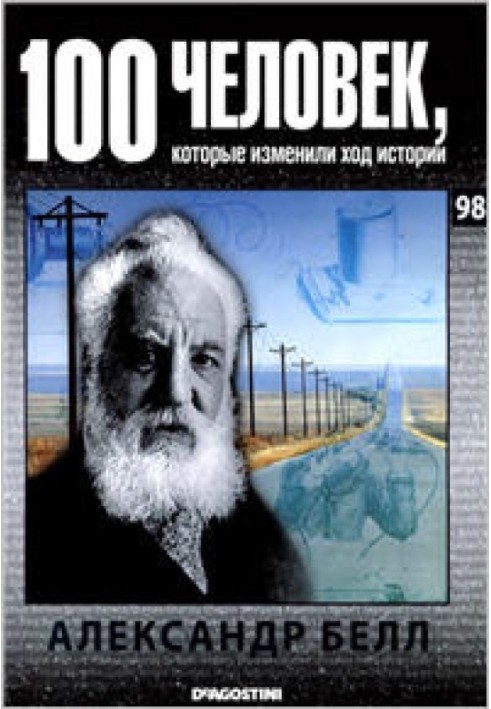Alexander Bell
 Instant download
Instant download
after payment (24/7)
 Wide range of formats
Wide range of formats
(for all gadgets)
 Full book
Full book
(including for Apple and Android)
Perhaps no invention - with the exception of the printing press - has had such a profound impact on the development of communications as the telephone. Before the invention of the telephone, there were only two ways to communicate at a distance: letter and telegram. However, mail in that era worked slowly, and sending correspondence by telegraph was quite expensive. In addition, transporting large texts using dots and dashes in Morse code was extremely inconvenient. In the second half of the 19th century, several researchers persistently searched for ways to transmit sound over long distances. The first person to patent a telephone was Alexander Bell (1847-1922). This invention revolutionized communications and the very life of human society, dramatically accelerating the exchange of information. Having achieved success, the inventor was not inclined to rest on his laurels. A man of an inquisitive mind, he spent his whole life searching for something new. Bell considered the photophone to be his most important invention. Working with his assistant Charles Tainter, Bell invented a device capable of transmitting signals using a light beam. The first message was transmitted using a wireless telephone using a selenium crystal and a mirror on June 3, 1880. Having undergone numerous improvements, Bell's photophone became the basis for modern fiber optic and laser communications technology. These days, such communication systems can be found everywhere because they are efficient, lightweight and consume little power. In 1996, the TRS-5 fiber optic cable using optical amplifiers was laid along the bottom of the Pacific Ocean. A year later, FLAG (Global Fiber Optic Link) arrived, creating the longest single cable network on the planet. This system provides the Internet infrastructure. Having become famous as a great inventor, Bell himself did not consider the telephone he invented to be his most important achievement: “Recognition of my work and interest in teaching the deaf has always pleased me more than recognition of my merits in inventing the telephone.” Throughout his life, he sought to help deaf children and devoted much more time and effort to this than to invention.
Data sheet
- Name of the Author
- Анастасия Жаркова Евгеньевна
- Language
- Russian
Reviews
Вражаюча історія великого винахідника!
Книга про Олександра Белла - це не просто біографія, а справжня подорож у світ інновацій та відкриттів, які змінили наше життя. Автор майстерно описує не лише сам процес винаходу телефону, але й контекст, в якому він з'явився. Читач дізнається про труднощі, з якими стикався Белл, його наполегливість та безмежну цікавість до світу навколо. Особливо вразило те, як Белл, незважаючи на свій успіх, залишався скромним і зосередженим на допомозі іншим, зокрема глухим дітям. Книга не лише інформативна, але й надихає, закликаючи нас цінувати інновації та їхній вплив на суспільство. Я б рекомендував цю книгу всім, хто цікавиться історією технологій та людською винахідливістю. Вона залишає глибокий слід у серці та розумі!


























